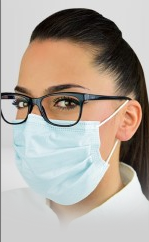Coronavirus Prevention Tips
Wash your hands often with Antimicrobial Soap and water for at least 20 seconds. If soap and water are not available, use an alcohol-based hand sanitizer. It is best to use a Hospital level Antimicrobial Soap.
Avoid touching your eyes, nose, and mouth with unwashed hands.
Avoid close contact with people who are sick. Most people are wearing Face Masks.
Stay home when you are sick.
Cover your cough or sneeze with a tissue, then throw the tissue in the trash.
Clean and disinfect frequently touched objects and surfaces. the more you clean with a Hospital level Disinfectant the more you will be killing the Germs , Viruses and bacteria that cause everyday illnesses and the CoronaVirus.
So Dont forget to buy your Hospital level Disinfectant Here

